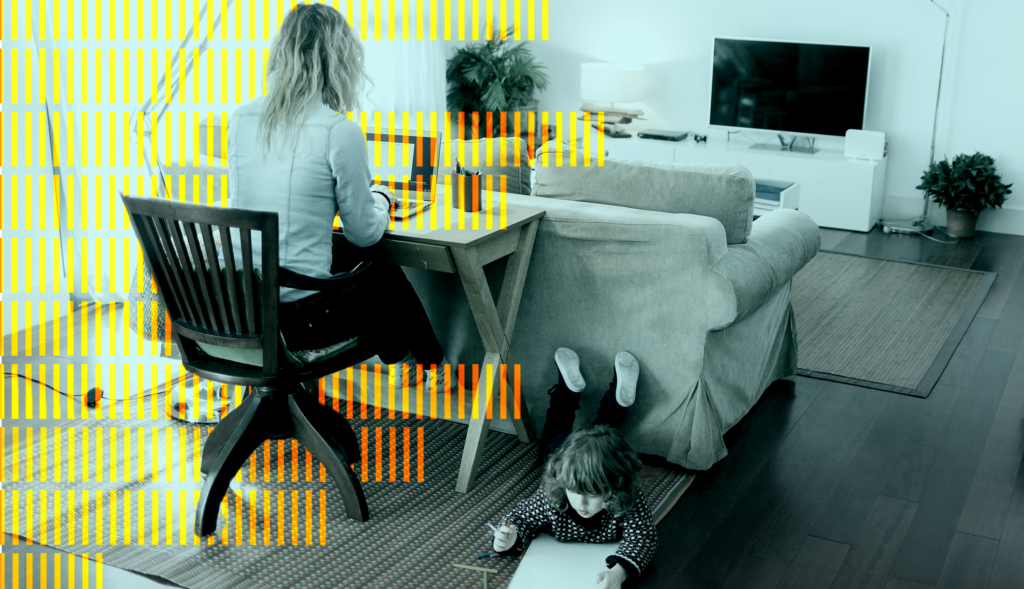Setting the scene: I’m a nine-year veteran full-time WFH employee, I have a 10-year-old boy, I have a great relationship with my son’s other parents, and a puppy (that we got in January and is TEETHING!).
I’m fortunate enough to have some experience with this situation already. Every summer, my boy is stuck here with me while I work at home, and he’s still required to learn over summer, because I need him to be occupied—granted, during the summer it’s not a full school day, but he’s still required. Thus, my son is already trained with how to deal with me working from home. I thought I’d share what works for us, and my plans for the complete lack of social activity we have now.
Some of our previous activity has been modified for the full school day, and I’ve only included the details we use now because of the full school day.
- Come up with a schedule. I recommend including your kid(s) in this planning. We put our heads together and came up with a schedule that works for us, and he can check when I’m on a phone call without bothering me to know what he’s supposed to be doing. This schedule encompasses my entire workday, rather than just a normal school day, because I need him to be able to check it throughout the day when I’m busy. Below is our schedule:
| Start Time |
End Time |
Activity |
| 8 a.m. |
10 a.m. |
School Time |
| 10 a.m. |
10:30 a.m. |
Chores |
| 10:30 a.m. |
11 a.m. |
P.E. Time |
| 11 a.m. |
12 p.m. |
Play Time |
| 12 p.m. |
1 p.m. |
Lunch With Mom |
| 1 p.m. |
3 p.m. |
School Time |
| 3 p.m. |
3:30 p.m. |
Chores |
| 3:30 p.m. |
4 p.m. |
Reading |
| 4 p.m. |
5 p.m. |
Play Time |
- Create a list of chores they can do. Following up on the first point, keep them busy, let them get a little physical activity, and keep your house in order. 😊 By creating a list to choose from, they can select something without bothering you, and you can ensure what they work on is something you’re comfortable with them doing autonomously. I like to leave it open for suggestions, as well. While doing one thing, they may think of something else to add to the list or they may suggest they’re willing and ready to do a chore you weren’t sure about.
- Ensure they have what they need. It will help them be more-or-less self-sufficient. If they’re using Google Classroom or another application for their schoolwork, ensure they can get to it and get logged in on their own. Ensure they know how to submit their work as well. A kid’s Google account doesn’t allow access to YouTube, so be sure you can work around the restriction, if needed. (We get around it by casting from my phone to the TV in the living room when he needs something like the Virtual Field Trips or GoNoodle, for example.)
- Create a system for Kid Q&A. By allowing for questions they need answered, you can keep them from interrupting your work. This can be via Hangouts if they’re using a kid’s Google account, or simply using a piece of paper to write it down and pass it out of sight to you. My son doesn’t want to be on camera, and if he knows my camera is on, he actively avoids it. Your kid might be less shy, in which case, I wish you luck keeping them off the camera. 😊
- Set up virtual playdates. Whether they’re social hours or 1:1 video calls through Duo, FaceTime, or whatever application you have, staying connected is important for kids. Through Google Classroom, they can do a class video call. My son doesn’t have a webcam on his laptop (a very nice Christmas gift!), but if they don’t have a computer to use, they can borrow your smart phone, use a tablet, or use another video-capable device you may have. But it’s not just about their classmates and friends—we also set up a regular virtual family happy hour, so my parents can see and talk to us and the kids, and we can all see each other and have “normal” chats. We’ve also switched our regular chats with my siblings and parents to video calls to get some face-to-face time with other people. I suggest working with your kids’ friends’ parents to set up time for them to chat as well, so they don’t lose those connections.
- Talk to your child(ren). I like to have discussions with my son. While setting up our system, preparing to get started, and continuously while on our lunch break or after school/work, I ensure he knows WHY we’re doing this, and open the floor to any questions he may have. I’ve found it helps him understand why we’re social distancing when we can tie it to people he knows in real life. My brother has cystic fibrosis and therefore, is at a higher risk for severe or fatal reaction to COVID-19, and some of my son’s grandparents are in the higher-risk age bracket. I explained what could happen to them, or people like them, as this coronavirus spreads, and even to people who are healthy like us, and he’s been on board completely. It’s taken him up a notch even, and he’s reminding others (and himself, aloud) to wash their hands and be careful. This can be a tricky subject because we don’t want to scare our kids—especially younger children—but I think this is an opportunity to teach him how to deal with fearful situations, so as he grows and runs into crisis situations, he can deal with them calmly and confidently. Things that are crises to kids are not always crises to adults, and I hope to be able to talk him through those and give him the tools to learn how to accept what can and can’t be done in a crisis.
Things I plan to start:
- Connect with him on a geek level; really allow ourselves to totally geek out. We already do this with Legend of Zelda games, but I plan to ramp it up. (More on this to come. 😉)
- Gardening—really connect with nature where we can. He loves to grow things. He had a lima bean project for school earlier this year, and now he’s decided we can grow all kinds of things.
- Projects he has received as gifts—he has received some robotics, rocketry, and science projects as gifts over the last couple of birthdays and Christmases we never made time for. Now, we have time!
- Let go of the little things. We’re trapped together… some perspective is in order. I’m going to work harder to not get after him about things that don’t really matter, and just relax a little. I’m also working on staying calm to help him through his emotions. This is just as stressful for him as it is for me, and, I’ll admit, I don’t always handle it as well as I’d like.
This is what works for us—it may not work for you. Consider your child’s personality and your own as you make your preparations and plans to accept and work in the new normal. My kid is very literal, practical, and geeky, so this works for us. I also want to give honorable mention to his other parents, with whom I’m lucky enough to be on the same page. We’re working together to ensure transitions between our houses are as seamless as possible, so we don’t add to the stress. As the only other adult in-person contact we get, this has been even more galvanizing for our relationship (in a good way!). We’ve been sharing more than ever the little things that make us laugh or get us through the day, and we’ve offered each other sanctuary from the kids (as they have two girls in addition to the boy we share), if needed. Thus far, sanctuary hasn’t been needed, but the option and opportunity has been huge for our peace of mind.
May the odds be ever in our favor!







